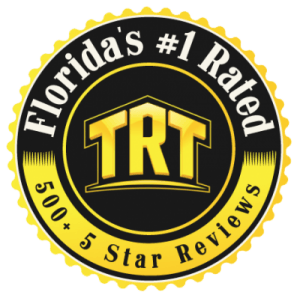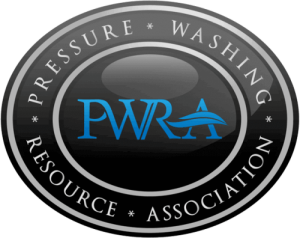Are you looking forward to organizing a conference or meeting? If yes, you should check out this Conference Planning Check List and learn how to organize a convention.
Successful Conference Planning Check List

Organizing a conference or event requires a lot of preparation. From choosing the venue to selecting speakers, planning a successful conference takes a lot of time and effort.
Even the most adept event manager can feel overwhelmed when it comes to the many moving pieces involved in putting together a conference. So what do you do if you don’t have years of experience and trial and error to create a conference?
Using our Conference Planning Checklist, you can ease some of the stress of planning this big event.
An ideal scenario would be to start planning your conference a year in advance, with an experienced team and budget.
Unfortunately, this, most likely, is not a reasonable expectation to have. But don’t panic, as we’ve put together a few standard ground rules to follow. But, of course, these are rules complicated conferences have all followed before, so you won’t have to reinvent the wheel before launching your conference together.
Planning a conference can take anywhere from one to two years, depending on how much work you need to do. It may seem daunting at the beginning of the process, but once you get started, it becomes easier.
A good checklist will help you stay organized and focused.
First, you will know what needs to happen and when to avoid wasting time, and if you’re not happy with something, you can easily change it later. Then, with a solid plan in place, you’ll be able to focus your efforts on the important parts of the project.
So whether you’re planning a small gathering or a large international conference, having a checklist will keep you on track and ensure that your event goes smoothly.
Here are some things you need to consider before starting your next conference.
Target Audience
Identifying your target audience before planning the conference is crucial to everything going smoothly.
It is important to ensure you think from the perspective of your participants after choosing your goal and determining how to track your success. Do you think your conference plan will meet their needs and ensure a productive and enjoyable experience for them?
Considering your attendees’ needs will impact everything. For example, young tech talent has very different needs than your firm’s top managers, so you won’t want to cram them together.
Discover Who Would Most Likely Be Your Target Audience.
Conference Planning Checklist
- Printing
- Trade Booths – Check out these 16 Thrifty & Effective Trade Show Booth Ideas for Small Budgets.
- Models
- Talent
- Staffing
- Security
- Decoration
- Transportation
- Catering
Build your timeline.
Factor in enough time to complete each stage of your conference planning, then add some wiggle room around deadlines.
An ideal scenario would be to start planning your conference a year in advance, with an experienced team and budget.
Decide if you’re hiring a pro.
Hiring a professional conference organizer (PCO) is recommended for first-time conference planners. They will manage your conference’s administrative and logistical aspects for a fixed fee and sometimes a fee per delegate. Customers say that a good PCO is worth their weight in gold, as they know what to do in situations such as a keynote speaker canceling or AV supplier issues.
Get your board committee.
Every successful research conference needs an active organizing committee. Committee members should be experts on your conference’s content and topics of interest.
You would want to make sure each committee member understands their roles and responsibilities before, during, and after the event.
Build your website.
If you’re a meeting planner within a membership association, creating a clear distinction between your association and your conference website is important.
Your association website should be a focal point for your members and promote your organization’s advocacy and education.
On the other hand, your conference website should be squarely focused on showcasing your event and converting visitors into delegates.
Whether your conference website is a micro-site within a larger organization website or flying solo, it needs to be user-friendly.
Event Budget
When planning an event, it is important to manage your finances, so start by creating a draft budget. Don’t forget to consider factors like fixed and variable costs, tax, and contingency planning when finalizing your budget.
Identify Variable Costs
Regarding conference planning, there are many more variable costs than fixed ones. Variable expenses depend on your event’s number of attendees, marketing costs, and special touches.
After defining all the line items that need to be included in your conference budget, creating a successful budget is simple.
Make sure you have extra money to pay for any last-minute expenses.
Investigate Funding Pots
The tourism budgets of many countries include funds for conferences with international delegates.
When considering a location, check if/how the local tourist board can help. Also, check if associations or organizations within your field offer any funding.
Pursue Sponsorship Opportunities
The money you bring in from registrations won’t be enough to cover your conference planning costs. So, you’ll need to look into sponsorship packages to help cover the difference.
Conference Planning Software
When looking for software to help with your conference, find one that can handle everything you need.
A generic event software might have some conference features, but they might not be very good. For example, if you’re planning an academic conference, the software you need will probably differ from what event planners in other fields use.
So, when comparing packages, ensure the platform you’re considering can handle all your needs.
Features of a single, connected, all-in-one system for planning a research conference should include:
- Abstract management
- Program building
- Delegate registration
- Mobile app with an integrated virtual platform to support online events
- Humans, not bots, should back all this event tech.
Making a great first impression on delegates through your abstract management software will help build your event reputation, and this has knock-on effects for all other aspects of your conference.
Event Registration Software
Make the registration process easier with event registration software. You can streamline event management with a variety of software tools.
Check out an all-in-one solution that can keep everything organized in one place. A software program like this can handle everything from event marketing to relationship management to project management.
GDPR Compliance
The EU takes its General Data Protection Regulation law very seriously. GDPR rules and regulations apply to anyone who processes the personal data of EU citizens. Because you’ll be handling the personal info of authors and delegates, if any of these folks are EU citizens, your software needs to be GDPR compliant by law.
Task Management & Project Messaging Tools
Some great free apps can keep your committee members engaged in the planning process and help them stay on target.
- Trello is great in terms of hyper-visual task management
- Slack is great in terms of project messaging.
Event Speaker
You should carefully select your keynote speaker if you plan to have one at your event. A good speaker often highlights an event, whereas a bad speaker can mean that attendees will remember the event for the wrong reasons.
It’s best to select your event speaker about six months before the event, and you should ask yourself the following questions before selecting:
- What is your event’s primary objective?
- Who is your target audience, and will the speaker resonate with them?
- What is your budget, and are their fees within that budget?
- What is the speaker’s purpose, and can they deliver on this?
Promote on Social Media
Decide which social media platforms you will use, devise a social media content plan, choose someone to manage your accounts, and start posting.
LinkedIn, Twitter, and Facebook can be great ways to reach your target audience.
Learn How To Promote Event on Social Media.
Post Conference
Hold a post-evaluation.
- Review what went well, what went wrong, and what things you can improve on in your conference.
- If there are any issues during the conference, find out what caused them, how you could avoid them next time, and what things you could have done better.
- Discuss next year’s conference and choose a chair.
- Send a thank you email to all relevant conference participants,
- Collect any outstanding payments
- Review invoices for accuracy
- Compile your post-conference report, and include suggestions and recommendations for the incoming chair.





